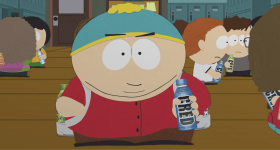‘That’s not who I am anymore,’ protests a bearded, bedraggled Logan (Hugh Jackman, Les Miserables) when confronted with his nickname, his anger emblematic of his need to escape the past. Jackman cannot make the same complaint, the actor returning time and again to the adamantium-enhanced Marvel superhero. After X-Men, X-Men 2, X-Men: The Last Stand, X-Men Origins: Wolverine and X-Men: First Class, the plainly-titled The Wolverine marks his sixth appearance as the character.
So it is that an on-screen persona tries to re-invent himself, even as the actor remains in the role that brought him fame. Their journeys may commence in opposition, but they unravel in parallel: a fight against a label, identity and set of attributes can only end in the embrace of all that makes Logan ‘the Wolverine’; the revelling in the brooding moodiness, bulky physique and steely antics that made him a star can only see Jackman find equilibrium in the character’s extremes.
In The Wolverine, you can take the X-Men out of the film’s title, but you can’t take the heroics the series signifies out of its latest chapter. In enlivening a script based on Chris Claremont and Frank Miller’s 1982 limited comic series, first adapted by Christopher McQuarrie (Jack the Giant Slayer), then tinkered with by Mark Bomback (Total Recall) and Scott Frank (Marley & Me), director James Mangold (Knight and Day) brings a grimmer tone to the action-laden character study – yet the trajectory from reluctance to acceptance is never in doubt.
A Nagasaki-set prologue provides context, relating Logan’s prisoner-of-war rescue of Japanese soldier Yashida (Ken Yamamura, Double Happiness Uranium). So too, his grief for Jean Grey (Famke Janssen, Taken 2), with present-day Logan’s emotional wounds eclipsing his external fortitude. Then feisty fighter Yukio (Rila Fukushima, Karma: A Very Twisted Love Story) becomes the bridge between past deeds and current dismay, summoning him to hear the dying request of his old friend (now played by Hal Yamanouchi, Sins Expiation). Soon, Logan is on the run with Yashida’s heir Mariko (debutant Tao Okamoto) as the yakuza hunt the latter for her status, and deadly doctor Viper (Svetlana Khodchenkova, Metro) stalks the former for his abilities.
In much of its content and construction, The Wolverine embodies all that grates about recent blockbusters, as bleakness becomes the feature’s primary mode, combat provides its sole visual display, and repetition is the fuel for its extended running time. An opening hour that plays with the darker sides of personality and proffers a precisely-choreographed bullet train sequence quickly transitions into genre generics, with the prominence of female characters, the perception of a new setting, and the potency of samurai-styled fighting pleasing, but not enough to have a significant influence.
Consequently, it is left to the man behind the mutant to instigate interest, a feat achieved more in the first guise than the second. As Logan, his snarling and sneering is in top form; with claws blazing as the Wolverine, he goes through the motions with gusto. Indeed, that Jackman succeeds in adding depth beyond the atrocious dialogue (‘I don’t have time for this shit,’ is one line uttered) and showing vulnerability in the hero’s intensity, is a testament to his investment in the character. For more than a decade, their fates have been linked; as the actor’s efforts boost the fortunes of the latest film, The Wolverine simply continues the cycle.
Rating: 2 ½ stars out of 5
The Wolverine
Director: James Mangold
USA, 2013, 126 mins
Release date: 25 July
Distributor: Fox
Rated: M
Actors:
Director:
Format:
Country:
Release:





